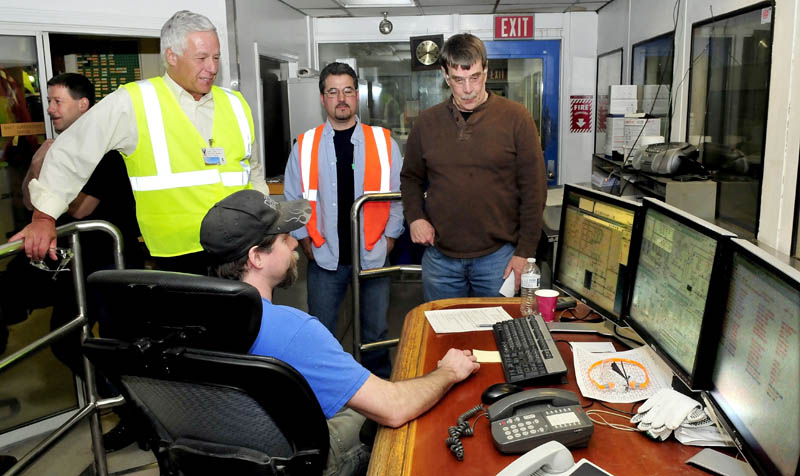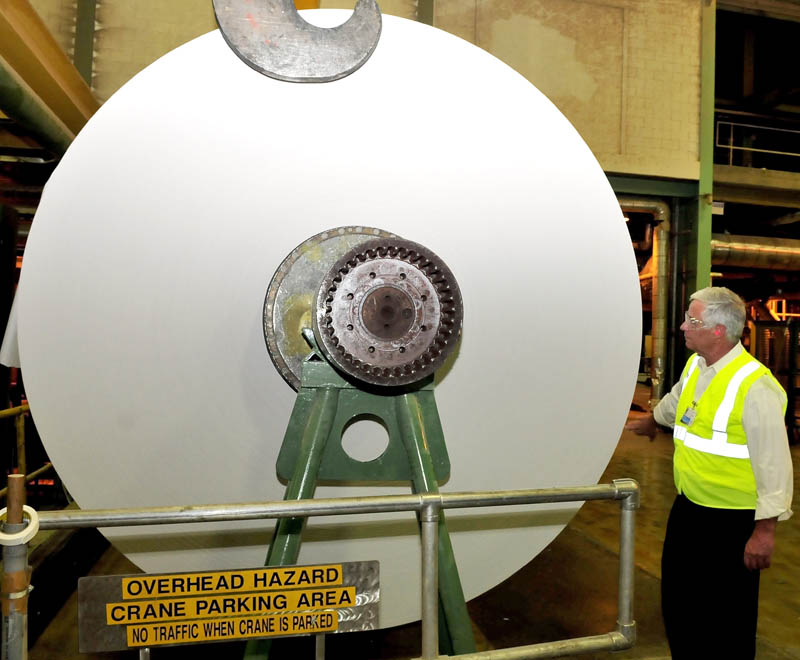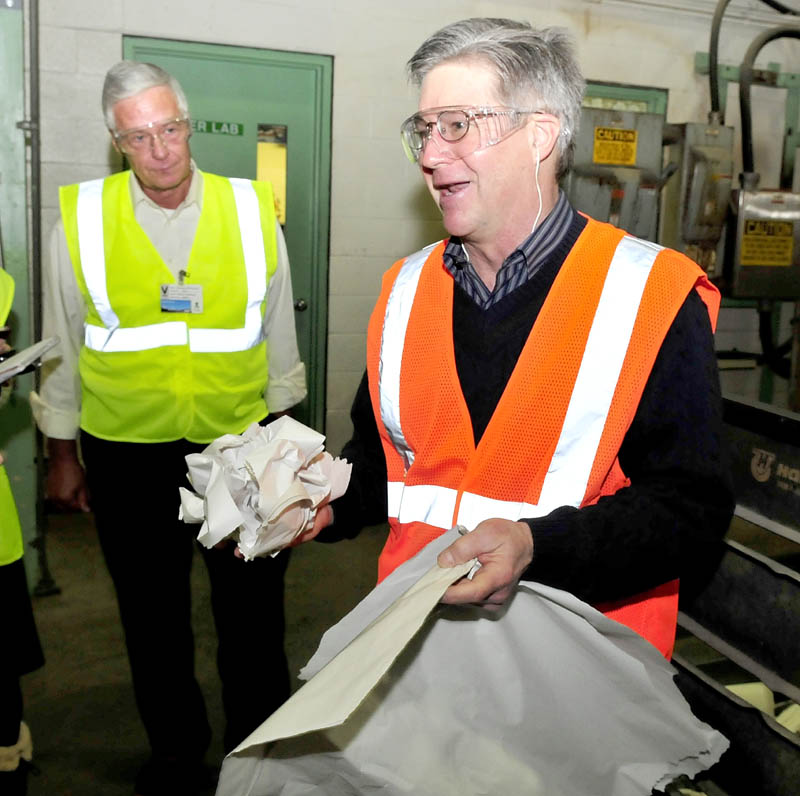MADISON — U.S. Rep. Mike Michaud toured the Madison Paper Industries mill on Monday, pledging to help paper mills across the state that could be affected by Canadian subsidies to a Nova Scotia paper mill.
It was the first day of a five-day, 850-mile tour of the state’s pulp and paper industry in which the congressman said he hopes to learn about issues relevant to one of the state’s most important industries.
The industry employees 7,300 people statewide and generates about $470 million in payroll annually, according to the Maine Pulp and Paper Association.
“I primarily want to highlight the issue of Canadian subsidies, but different mills have different issues as well. There are concerns with reliable transportation and energy issues,” said Michaud.
Michaud, 58, worked at Great Northern Paper Company in East Millinocket for 29 years. He recently sent a letter to U.S. Trade Representative Ron Kirk on the issue of the Pacific West Company in Nova Scotia buying an old paper mill with the help of subsidies from the Canadian government.
The subsidies, which would help the company buy and operate the former New Page Port Hawkesbury paper mill, could put Maine paper mills at a disadvantage at a time when the paper industry is already facing challenges from other international competition, said Michaud.
The Canadian mill closed in 2011, said Madison Paper Industries president and chief executive officer Russ Dreschsel. Since then, the paper industry has experienced a 20 percent decrease in demand for product, he said.
The subsidies and subsequent re-opening of the Canadian mill could be a threat to the sales of the Madison mill, which makes the same kind of paper, said Dreschel.
“It’s definitely an issue that would affect any company making light-weight and super-calendered paper. There is no doubt about that,” said Dreschsel.
The Madison mill employs between 220 and 230 people and has been an important part of the community and local economy since it opened in 1981, said Dreschel, who has been there since 1988 with the exception of two years he spent working in a German paper mill.
On Monday, Dreschel led Michaud and a small entourage on a tour of the mill, which produces super-calendered paper, a dense paper that is used for flyers and magazine sheets.
Between 20 and 24 reels of paper measuring 300,000 feet in length by 282 inches across and weighing about 30 tons each are produced every day. The mill operates 24 hours a day, 365 days a year, said Dreschel.
“A lot of people work here who live locally. It’s also important to the economy and supports other local businesses,” said Brady Pierce, 43, a millwright who has worked at the Madison mill for eight years.
The mill converts wood from spruce and fir trees into a pulp that is mixed with water and calcium carbonate, which acts as a filler and also brightens the color of the paper. Unlike the larger Sappi Fine Paper mill in nearby Skowhegan, wood at the Madison mill is turned into pulp mechanically rather than through chemicals that break down the fibers, said Dreschel.
The mixture is condensed once the calcium carbonate and other binding agents have been added the water is squeezed out and the pulp is sent through a series of 47 heated cylinders that give off steam.
The paper is wound on a reel and then processed through the supercalendar, a machine that polishes the paper and gives it the glossy cover that are used for flyers and magazine sheets.
“That’s when it actually looks like the paper you’ll see when you read something like the New York Times magazine,” said Dreschel.
The Madison mill ships paper to printing presses all over the country, although most of their business is in mid-Atlantic states and the Chicago area, he said.
The reels are cut in rolls to the size specifications of customers and packaged in cardboard and brown paper before they are shipped.
“The paper industry is extremely important for the state of Maine. Not only does it provide direct jobs, but it provides jobs indirectly at other businesses and it has an effect on the economy and community as a whole,” said Michaud.
He is asking for the United States to contact the Canadian government for complete information on the financial package they are offering to the Nova Scotia mill. The government should check that Canada is being consistent with world and North American trade agreements, since it appears that some of the subsidies might be in violation of these agreements, he said.
Today, Michaud continues his tour of the pulp and paper industry at Sappi Fine Paper in Skowhegan.
“I’ll be talking with management and employees, and I’m hoping to bring their stories back to our U.S. trade representative at the White House. I’m looking for what the mills mean to them and their families,” he said.
Rachel Ohm — 612-2368
rohm@mainetoday.com
Send questions/comments to the editors.






Success. Please wait for the page to reload. If the page does not reload within 5 seconds, please refresh the page.
Enter your email and password to access comments.
Hi, to comment on stories you must . This profile is in addition to your subscription and website login.
Already have a commenting profile? .
Invalid username/password.
Please check your email to confirm and complete your registration.
Only subscribers are eligible to post comments. Please subscribe or login first for digital access. Here’s why.
Use the form below to reset your password. When you've submitted your account email, we will send an email with a reset code.